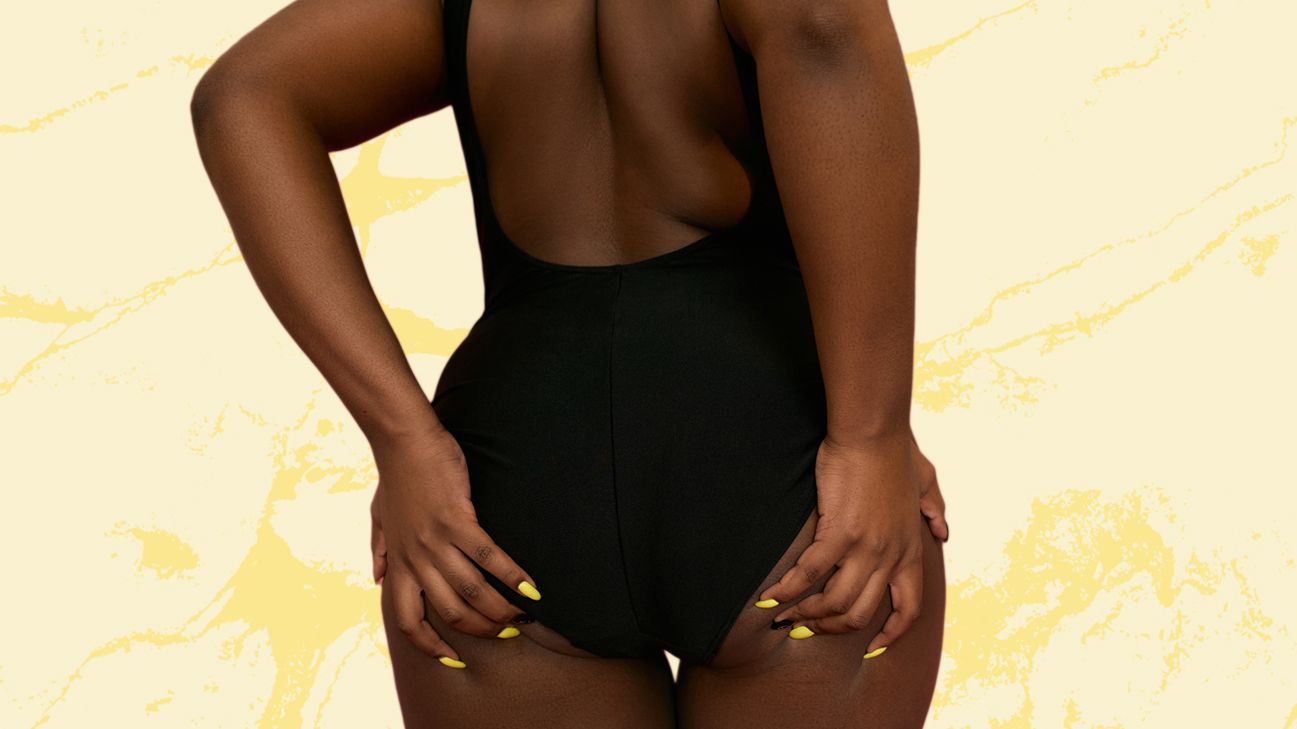Has pregnancy turned your bootylicious peach into a deflated balloon? If so, you’re not alone. The babymaking process can change the shape and feel of your tush. But(t) don’t worry! We’ve got the top tips to get your butt back on track. Here’s how to get rid of mom butt.
Mom butt 101
What’s a “mom butt”? Mom butt’s a term that generally refers to changes in the look and feel of your fanny during and after pregnancy.
Why does your butt get bigger after pregnancy? A larger, looser butt can be a natural result of weight gain, hormonal changes, and reduced physical activity.
How do you get rid of mom butt? A balanced, healthful diet paired with a consistent strength-training program can help tone and tighten your rear-end. Just keep in mind, results take time. So be kind to yourself ❤️.

Mom butt is slang for a post-baby booty. A bébé on board can make your butt flatter, bigger, or less firm. You might also notice your abs and upper legs are looser than they were pre-pregnancy. That’s totally normal.
If you’re looking to get your booty poppin’, a healthful diet and exercise routine can help.
Mom butt can be caused by a combo of factors. Here’s the deets.
Body ch-ch-changes
Your belly isn’t the only thing that grows during pregnancy. A 2015 study found that lumbar spine curvature increased by a total of 41 percent between 12 and 32 weeks of gestation. Your hips will also widen throughout pregnancy to prep your bod for delivery. These changes can alter your posture in a way that keeps you from activating your glute muscles as much as you used to.
Hormones
Your body produces extra relaxin when you’re pregnant. This hormone helps relax your tendons, ligaments, and muscles around the pelvis. While this is super helpful when it comes to giving birth, these changes may indirectly affect the shape of your bum.
Activity
Pregnancy can take some of the pep out of your step. But hey, creating a human is hard work! It’s totally normal to exercise less when you’re expecting. The downside is that a drop in physical activity can lead to muscle weakness and muscle loss.
Excess body fat can increase your risk of various health concerns including heart disease, strokes, and high blood pressure. But the location of that excess fat counts for a lot.
Generally, the riskiest place to store fat is in your abdominal area. Studies suggest tummy fat can make you more resilient to insulin which increases your risk of type 2 diabetes. Visceral fat can also be dangerous because it wraps around your abdominal organs.
While butt fat isn’t as risky as stomach fat, it still may not be good for you. A 2018 study found that shedding leg and gluteal fat improved markers linked to heart disease. But we need more research to understand the link between a larger caboose and health concerns 10/10.
Ready to get your pre-baby butt back? Here are some tips to restore your rear to its former glory.
Nutrition
Even though you’re no longer “eating for two,” you still need to follow a nutritious diet postpartum. This is particularly important if you’re nursing. You should get an additional 450 to 500 calories a day if you’re breastfeeding, according to the CDC.
Some healthy choices to add to your diet include:
If you’re trying to lose weight, you may also want to ditch:
- booze
- refined sugar
- processed stuff like fast or frozen foods
- simple carbs (e.g. white potatoes, white rice, white bread, cakes, and cookies)
Exercise tips
There’s no one-size-fits-all exercise routine that can get your bum back in shape. But you might want to do a combo of cardio and strengthening exercises to get the best of both worlds.
According to the U.S. Department of Health and Human Services, you should do 75 to 150 minutes of high-intensity aerobics or 150 to 300 minutes of moderate-intensity exercise per week to see results.
Some killer cardio options include:
As for strength training, focus on exercises that target your glutes, abs, and legs. Some top-notch choices include:
Pro tip: Accessories can take your workout up a notch. Some great choices include resistance bands, dumbbells, kettlebells, and barbells.
Keep it safe
Always talk with your doctor before making any major changes to your diet or fitness routine. They can give you customized advice based on your unique situation.
It’s also important to set realistic goals. Pushing yourself too hard too quickly can increase your chance of getting injured. Try to be patient with the process. And remember, you’re absolutely GORGEOUS just the way you are.
Pregnancy can make your butt bigger, wider, and less toned. The resulting “mom butt” can be caused by changes in your weight, hormones, and fitness level. The good news? Mom butt isn’t permanent and you can use a healthful diet and exercise program to kick it to the curb.
